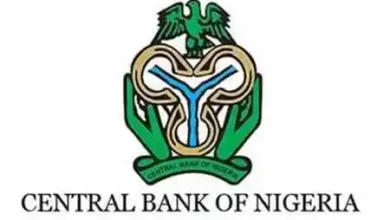Cryptocurrency Regulation: Between The CBN And The SEC

Scholars interested in Decentralized finance are quite familiar with the debate regarding the true identity of cryptocurrency: is it a currency, a commodity or an asset class? Its many controversies notwithstanding, it is this amorphous nature that further complicates attempts by regulators to exert any control over digital tokens.
To the extent that it can be used to make payments for goods and services just like fiat money, it represents currency. Crypto as currency got a boost recently when Elon Musk, CEO of Tesla, announced that the American electric vehicle company would soon accept Bitcoin as payment for its vehicles.
But not a few argue that the very fact that cryptocurrency is not generally accepted as a means of payment coupled with its high volatility rates diminishes its function as a medium of exchange. For example, in January 2021 alone as reported by CNN Business, ‘’bitcoin’s value rose to $42,000, fell to $30,000, then rose again to $40,000 — all in the course of one week’’. Little wonder, many now believe, that cryptocurrencies tend to be pivoting away from the currency role.
At another level, cryptocurrencies are commodities to the extent that, like oil and gold, they can be bought and sold in cash markets or via derivatives such as futures commodities. They are treated as commodities if traded on a recognized Exchange. In the United States of America for example, virtual currencies, such as Bitcoin, have been determined to be commodities under the Commodity Exchange Act. This is why the US Commodities Futures Trading Commission designates Bitcoin as a commodity and asserts jurisdiction whenever a virtual currency is used in a derivatives contract.
Indeed, Bitcoin’s volatility makes it suitable for futures trading and has become very popular among traders since the launch of the first Bitcoin futures product in December 2017 by the Chicago Board Options Exchange (CBOE). Cryptocurrencies are also securities which like stocks, can be issued via Initial Coin Offerings and used to represent shares in online projects.
It is in this context that the recent positions of the Central Bank of Nigeria and the Securities and Exchange Commission can be situated. The CBN has responsibility to issue domestic currency; it also conducts monetary policy with the primary mandate of maintaining price and monetary stability.
The SEC is the apex regulator of the capital market with responsibility to protect investors. The Commission also registers and regulates Commodity Exchanges in Nigeria. Section 13 of the Investment and Securities Act 2007 gives the SEC powers to regulate investments and securities business in Nigeria. The position of the Commission, which it made clear in a recent statement, is that crypto assets are securities, unless proven otherwise and so it has responsibility to regulate crypto-token or crypto-coin investments when the character of the investments qualifies as securities transactions.
Understandably, the CBN is bugged by the exponential growth of cryptocurrencies in the country- the reason it has requested financial institutions to steer clear of transactions involving digital currencies. First, it contends that cryptocurrencies are illegal in Nigeria because their use goes against the key mandate of the CBN, enshrined in the CBN Act as the issuer of legal tender in Nigeria.
The apex Bank is equally worried that cryptocurrencies are issued by unregulated and unlicensed entities. In response to the public reaction which trailed its recent directive to banks, the apex bank came close to calling cryptos fake assets when it asserted that unlike Fiat money which is backed by the full faith of a country or Central Bank, cryptocurrencies do not have any intrinsic or fundamental value. Furthermore, the CBN is concerned that they are being used for money laundering, terrorism financing and other criminal activities given the anonymity associated with virtual currencies. So, the recent measure taken by the Bank in this regard is meant to protect the integrity of the country’s financial system.
On its own part, the SEC is concerned about the speculative nature of cryptocurrencies which renders them highly volatile and puts retail investors in particular at risk. This informed its effort to provide a regulatory framework for digital asset trading platforms in Nigeria. In a statement the Commission issued in September last year, it acknowledged that ‘digital assets offerings provide alternative investment opportunities for the investing public’ and that despite their upsides, potential risks exist in many areas such as investor protection, transparency, market integrity and the interest of the public.
What is not in doubt therefore is that cryptocurrency functions not only as currency but also as commodity and securities. Viewed from this perspective, the CBN and the SEC must handshake to address the challenge posed by the rising uptake of digital currencies in Nigeria especially by the teeming youths. It is cheering to note that the SEC has come out to categorically state that the Commission’s stance does not contradict that of the apex bank.
To the extent that the risks associated with digital currencies identified by the CBN are capable of threatening investor protection, which is a key mandate of the SEC, one could see some degree of regulatory goal congruence. This is the more reason the CBN and the SEC must be seen to be working together so as to properly identify these risks and ensure that the right measures are put in place to foster the growth of digital currencies in Nigeria. Doing so will be in the overall interest of the economy.
In the US for example, virtual currency transactions, which must be reported in US dollars, are taxable by law just like transactions in any other property. This is why the Department of the Treasury through the Internal Revenue Service shows keen interest in digital currency transactions. Back home, the Federal Inland Revenue Service should borrow a leaf and do likewise.
As an aside, if there is one thing the recent action by the CBN with respect to cryptocurrencies has done, it is to stimulate a lot of interest in digital currencies. In many educational institutions in the country today, it will not come as a surprise to learn that it has become the subject of assignments and an area of focus in final year student projects especially in the faculties of Social and Management Sciences. It is of interest to note that out of ten post graduate students of finance I interacted with recently, nine said they did not support the restrictions on cryptocurrencies and would be willing to invest in crypto assets if they had the opportunity. I equally sought the views of some of my colleagues in the faculty; a majority of the academic staff opposed the idea of any restriction on cryptocurrency although most of the Professors I interviewed hailed the action of the CBN. This is quite instructive. Since that CBN’s circular, the level of awareness in digital currencies seems to have surged.
Against this backdrop, the CBN should ride on the mood of the moment, in concert with the SEC, to develop and disseminate educational materials with respect to digital currencies. By the same token, the SEC should champion investor education materials and warnings which can go a long way to ensure that individual investors understand the nature of crypto-assets as well as the risks associated with them. As the SEC rightly pointed out, the overarching objective of regulation should not be to hinder technology or stifle innovation but ‘to create standards that encourage ethical practices that ultimately make for a fair and efficient market’.
Uche Uwaleke is a Professor of Capital Market and the President of the Capital Market Academics of Nigeria.






